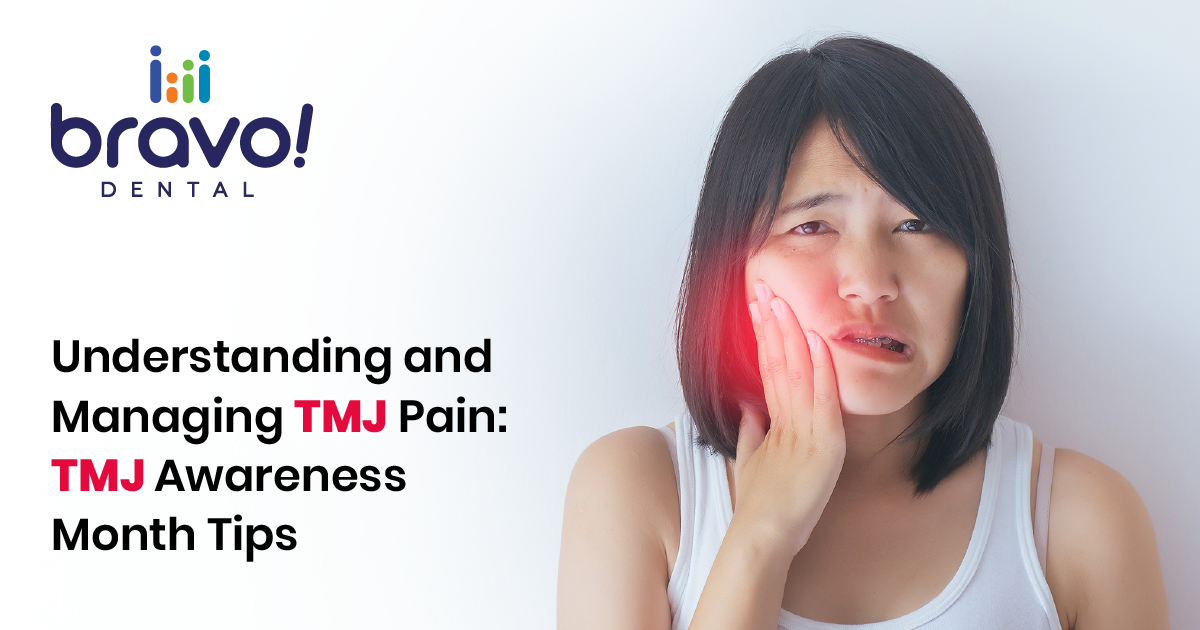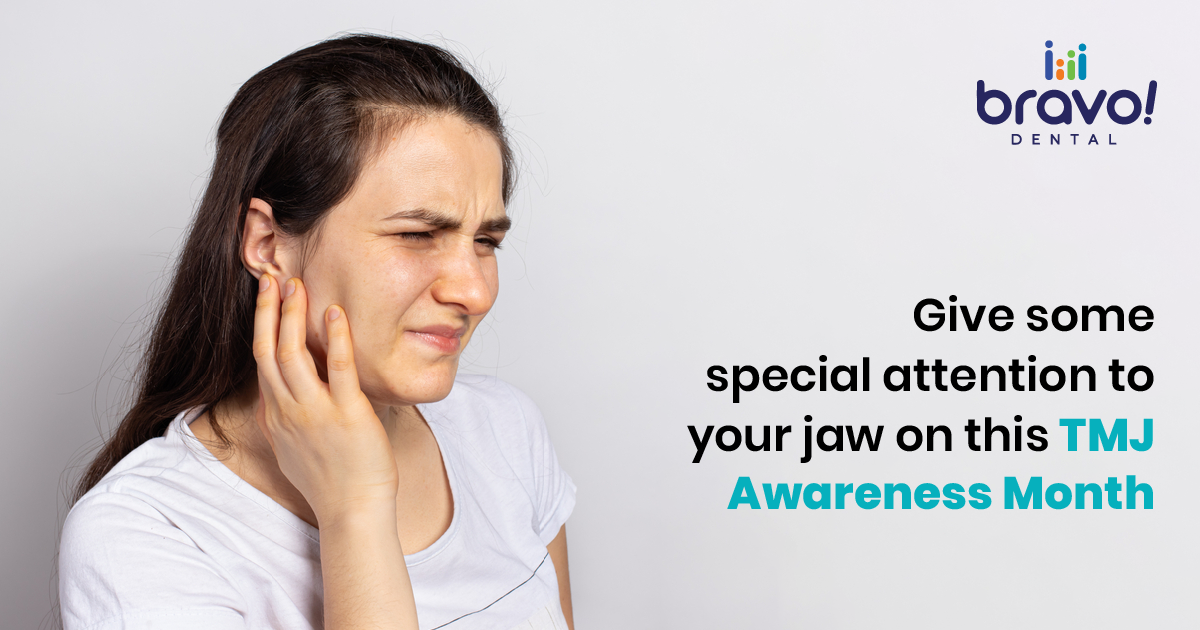Temporomandibular joint disorder is a common but often overlooked ailment that affects the jaw and can cause severe discomfort. To increase awareness and promote a better understanding of this condition, November is recognized as TMJ Awareness Month.
Understanding TMJ
The temporomandibular joint (TMJ) is the hinge joint that connects your jaw to your skull. It plays a crucial role in everyday activities such as talking, chewing, and yawning. When this joint becomes dysfunctional or painful, it’s known as TMJ disorder.
Common Symptoms of TMJ
- The most apparent symptom is jaw pain. It can range from mild discomfort to excruciating pain, often concentrated around the ear and the jaw joint itself.
- TMJ disorders can lead to tension headaches that radiate from the jaw area to the temples.
- Some individuals with TMJ experience clicking or popping noises when they open or close their mouths.
- TMJ issues can also manifest as ear pain, often misdiagnosed as an ear infection.
Tips to Ease TMJ Pain and Protect Your Jaw
Consult a dentist: If you suspect you have TMJ disorder, consult an experienced dentist or oral surgeon experienced in treating TMJ issues. They can provide an accurate diagnosis and recommend an appropriate treatment plan.
Oral hygiene: Maintain good oral hygiene to prevent dental issues exacerbating TMJ pain. Regular brushing, flossing, and dental check-ups are essential.
Relaxation techniques: Stress can exacerbate TMJ symptoms. Practice relaxation techniques such as deep breathing, meditation, or yoga to reduce stress and tension.
Dietary adjustments: Avoid hard, chewy, or crunchy foods that can strain your jaw. Opt for a soft diet and cut your food into smaller, bite-sized pieces to reduce jaw stress.
Ice and heat therapy: Applying ice and heat packs can help alleviate pain and reduce inflammation. Apply ice for 15-20 minutes, then use a warm compress for a similar duration.
Jaw exercises: Gentle jaw exercises prescribed by a dentist or therapist can improve jaw mobility and reduce pain.
Medications: Over-the-counter pain relievers and muscle relaxants can offer temporary relief. However, consult a healthcare professional before taking any medication.
Oral devices: Some people benefit from oral appliances, such as splints or mouthguards, to help realign the jaw and alleviate pressure on the TMJ.
Avoid teeth clenching and grinding: These habits can worsen TMJ pain. A nightguard can help protect your teeth and reduce jaw clenching during sleep.
Posture matters: Maintain good posture, as slouching can affect the alignment of your jaw and lead to TMJ pain. Sit up straight and adjust your work environment.
Limit jaw straining habits: Avoid habits like chewing gum, nail-biting, pen-chewing, or excessive gum chewing that stress your jaw.
Educate yourself: Understanding your condition and its triggers is crucial. This knowledge empowers you to make informed choices to protect your jaw.
Conclusion
TMJ Awareness Month serves as a reminder to pay attention to the health of our jaw joints. If you or someone you know is suffering from TMJ, remember that early diagnosis and a proactive approach to managing the condition can make a significant difference in your quality of life. We at Bravo! Dental prioritize your oral health and ensure a pain-free, comfortable life.


